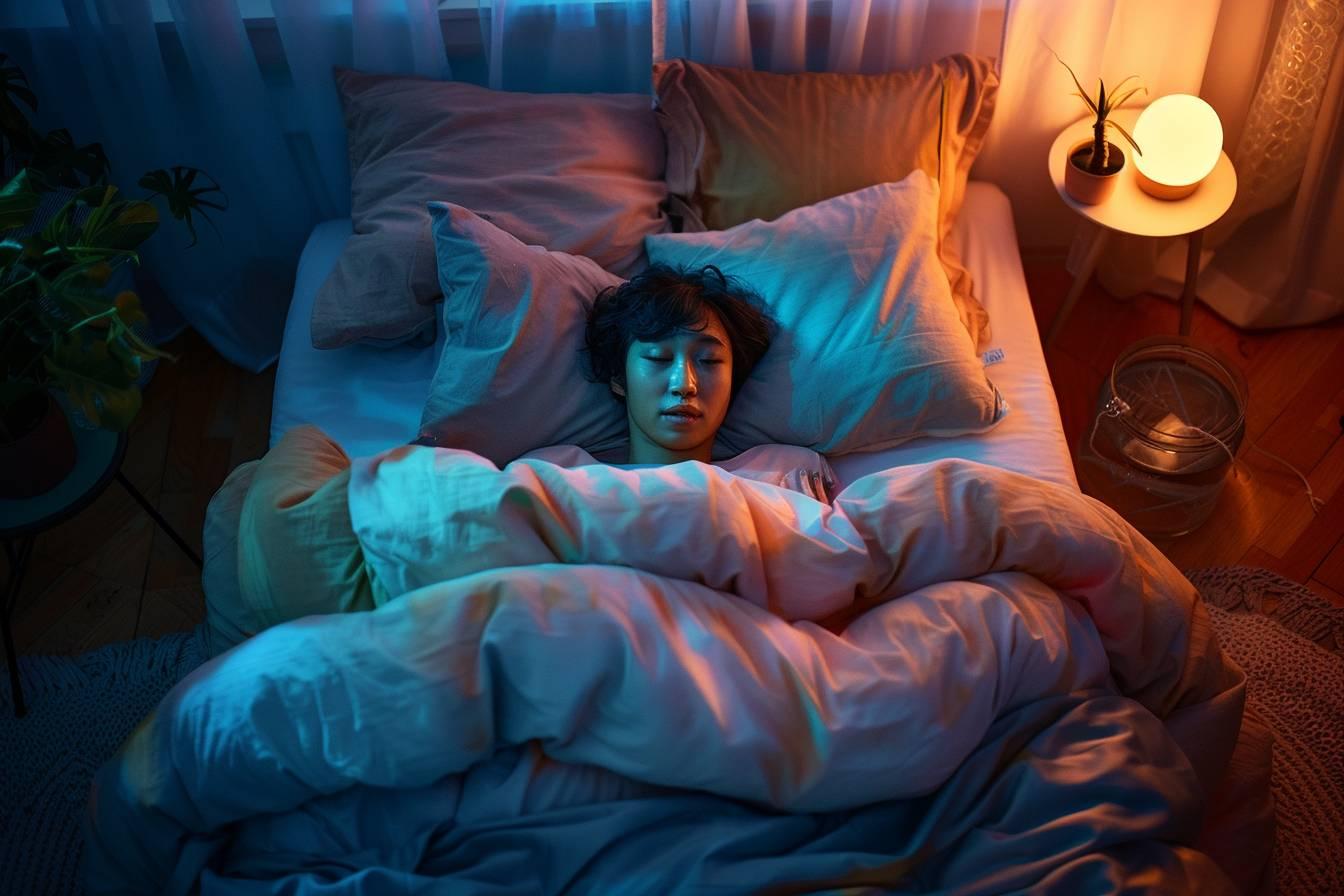Sleep is an essential component of our well-being, but sometimes our nights are disrupted by multiple awakenings. This phenomenon, far from being rare, can have significant repercussions on our quality of life. Let's study together the main causes of these nighttime awakenings and study effective solutions to find peaceful and restorative nights.
Sleep disorders: a common problem
Repeated nighttime awakenings are a common symptom of sleep disorders. They affect many people, regardless of age or lifestyle. These interruptions can be frustrating and exhausting, especially when they become chronic.
Here are some alarming statistics about sleep disorders:
- 30% of adults suffer from occasional insomnia
- 10% suffer from chronic insomnia
- 40% of people over 65 complain of frequent nighttime awakenings
Understanding the mechanisms of sleep is crucial to better understand these untimely awakenings. Understanding the sleep cycle is an excellent starting point for people who are concerned about their health and want to improve the quality of their night's rest.
5 Common Causes of Nighttime Waking Up
There are several factors that can cause these multiple awakenings during the night. By identifying them, we can better target the appropriate solutions. Here are the 5 most common causes:
1. Stress and anxiety
Stress is one of the biggest sleep disruptors. Work or personal concerns can invade our minds, preventing us from getting any rest. As a freelance writer, I sometimes face this problem, especially when deadlines pile up.
2. Inadequate sleep environment
An unsuitable environment can greatly affect the quality of our sleep. A room that is too hot, too noisy or poorly ventilated can cause frequent awakenings. Light, whether from outside or from electronic devices, can also disrupt our sleep cycle.
3. Eating habits
What we eat and drink, especially in the evening, can have a significant impact on our sleep. Caffeine , alcohol and heavy meals late at night are often responsible for nighttime awakenings.
4. Sleep apnea
This breathing disorder causes pauses in breathing during sleep, leading to micro-awakenings that are not always remembered. Sleep apnea can have serious health consequences if left untreated.
5. Restless Legs Syndrome
This neurological condition is characterized by an unpleasant sensation in the legs, often accompanied by an irrepressible urge to move. It can seriously disrupt falling asleep and cause nighttime awakenings.
Effective solutions for peaceful nights
Fortunately, there are many solutions to improve the quality of our sleep and reduce nighttime awakenings. Here are some strategies that I have personally tested and that have proven to work:
- Establish a sleep routine : Going to bed and waking up at regular times, even on weekends, helps regulate our body clock.
- Create an environment conducive to sleep : A dark, cool and quiet bedroom promotes quality sleep.
- Practice relaxation techniques : Meditation, yoga, or deep breathing can help reduce stress and anxiety.
- Limit stimulant consumption : Avoid caffeine, alcohol and heavy meals before bedtime.
- Exercise regularly : Moderate physical activity during the day can improve sleep quality.
For those looking for more advanced solutions, the art of waking up gently with light alarm clocks and dawn simulators can be an interesting option. These devices imitate the sunrise, promoting a natural and gentle awakening.
Complementary strategies for optimal sleep
Beyond the basic solutions, there are other approaches that can help significantly improve the quality of our sleep. Here is a summary table of complementary strategies:
| Strategy | Description | Benefits |
|---|---|---|
| Cognitive behavioral therapy | Psychotherapeutic technique aimed at modifying thoughts and behaviors that are harmful to sleep | Reduced sleep anxiety, improved sleep hygiene |
| Aromatherapy | Using essential oils like lavender or chamomile | Promotes relaxation and prepares the body for sleep |
| Acupuncture | Traditional Chinese Medicine Technique | May help regulate the nervous system and improve sleep quality |
It's worth mentioning that every individual is unique and what works for one may not work for another. Don't be afraid to experiment with different approaches to find what works best for you.
If, despite these tips, your sleep problems persist, it is recommended that you consult a health professional. A doctor or sleep specialist will be able to help you identify the specific causes of your nighttime awakenings and suggest appropriate treatment.
To learn more about the subject and discover other tips, I invite you to consult our detailed article on how to sleep well at night without waking up . You will find essential advice to optimize your sleep and enjoy restful nights.
By taking a holistic approach and paying attention to your needs, you can significantly improve the quality of your sleep. Remember, sleep is a vital pillar of our health and well-being. Take the time to give it the attention it deserves, and you will reap the benefits in every aspect of your life.


